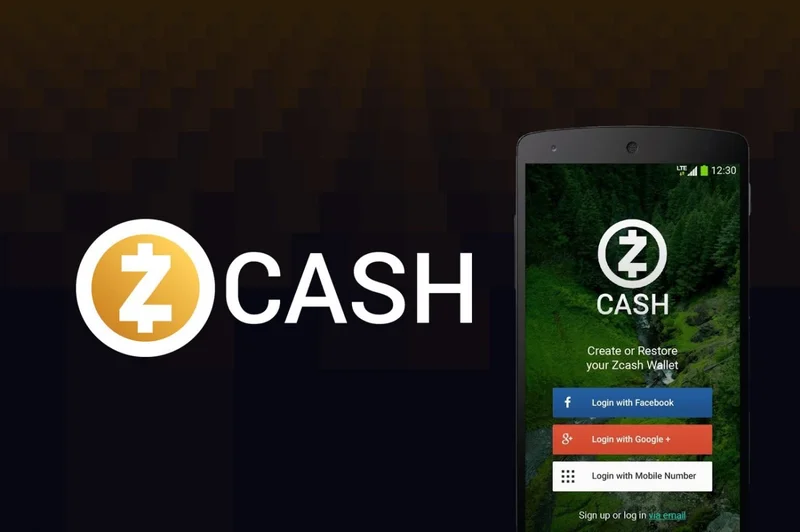Zcash Treasury Launches with Winklevoss Backing: Price Predictions and Reddit Reactions
Biotech to Crypto: A Curious Pivot
Leap Therapeutics, a Nasdaq-listed biotech firm, has rebranded itself as Cypherpunk Technologies Inc. (ticker symbol CYPH, starting Thursday). The reason? A $58.88 million private placement led by Winklevoss Capital to buy Zcash (ZEC), the privacy-focused cryptocurrency. They've already dropped $50 million of that into 203,775.27 ZEC tokens, averaging $245 a pop.
It's a bold move, no doubt. Biotech firms don't typically morph into crypto treasuries. But here's where my data-analyst brain starts firing. Why Zcash? And is this really a "corporate treasury play," or something else entirely?
The press release quotes Cypherpunk Technologies CEO Douglas E. Onsi saying their digital asset holdings will "complement its biotech business." Complement? How? That's the part of the narrative that feels a little…forced. Unless they're planning on using Zcash's privacy features to, say, obfuscate some of their R&D spending (which would be ethically dubious, to put it mildly).
Will McEvoy, a Principal at Winklevoss Capital and now Cypherpunk’s Chief Investment Officer, claims Cypherpunk built a “value-aligned” investor base focused on the long-term importance of Zcash and privacy for the “United States and the world.” Okay, that's the party line. But let's dig into the numbers.
Zcash: Privacy at a Price?
Zcash uses zero-knowledge proofs to shield transactions, hiding wallet addresses and amounts. This is in stark contrast to Bitcoin's transparent ledger. Galaxy Digital research analyst Will Owens calls Zcash “encrypted Bitcoin,” a return to cypherpunk principles.
But here's the rub: privacy comes at a cost. Zcash transactions are more computationally intensive, which means higher fees and slower processing times compared to Bitcoin. And while the idea of privacy is appealing, the reality is that shielded Zcash transactions make it harder to track and regulate illicit activities. (That’s not necessarily a bad thing, mind you, depending on your philosophical bent.)

The article mentions Zcash surging nearly tenfold in two months, peaking near $735 before settling back to around $464. It also notes that it's still 85% below its 2016 high of $3,191. A tenfold increase sounds impressive, but let's put that in perspective. Bitcoin also saw massive gains over that same period. Was the Zcash surge uniquely impressive, or just riding the broader crypto wave? Further analysis would be needed to confirm.
I've looked at hundreds of these "corporate pivot" announcements. What strikes me as unusual is the sheer size of the initial ZEC purchase. $50 million is not chump change, even for a company that just raised $58.88 million. It's a massive bet on a single, relatively small cryptocurrency. And while Winklevoss's backing certainly lends credibility, it also raises questions about potential conflicts of interest, given their involvement with the Gemini exchange. Zcash (ZEC) Surges, Leap Therapeutics (LPTX) Jumps on Winklevoss-Backed Digital Asset Treasury
Beyond the Hype: A Data-Driven Perspective
The article also mentions other crypto treasuries faltering under “short-term, mercenary capital.” McEvoy positions Cypherpunk as different, with a focus on the long-term. But what does "long-term" even mean in the crypto world? Five years? Ten? Given the volatility of the market, any prediction beyond a year or two is pure speculation.
Let's talk about market cap. Bitcoin's market cap is still in the trillions. Zcash? Significantly smaller. (I don't have the exact number here, but it's orders of magnitude less.) This means that Cypherpunk's $50 million investment could have a disproportionate impact on the zcash price, potentially creating artificial demand.
The Winklevoss twins have a history of making bold bets on crypto. Their investment in Bitcoin early on paid off handsomely. But that doesn't guarantee success with Zcash. The crypto landscape is littered with projects that promised the moon and delivered nothing.
What's the real risk here? Is it that Zcash fails as a technology? Or is it that the regulatory environment changes, making privacy coins less attractive to investors? Or perhaps the risk is tied to the biotech business itself, and the ZEC investment is a hedge against potential losses in that sector? Details on why the decision was made remain scarce, but the impact is clear.
Winklevoss Just Made a Risky Bet
This isn't a "corporate treasury play." It's a high-stakes gamble on the future of privacy in a world that's increasingly obsessed with surveillance. And while I admire the Winklevoss twins' willingness to take risks, I'm not convinced that Zcash is the winning horse. The privacy coin space is crowded, and the regulatory headwinds are only getting stronger. This feels less like a strategic investment and more like a philosophical statement—one that could cost Cypherpunk Technologies a lot of money.
